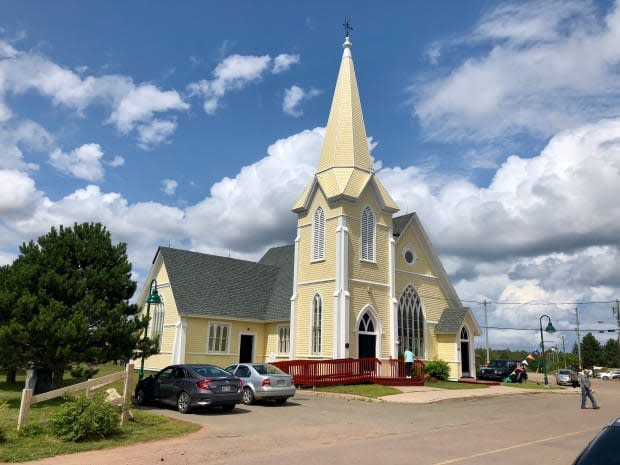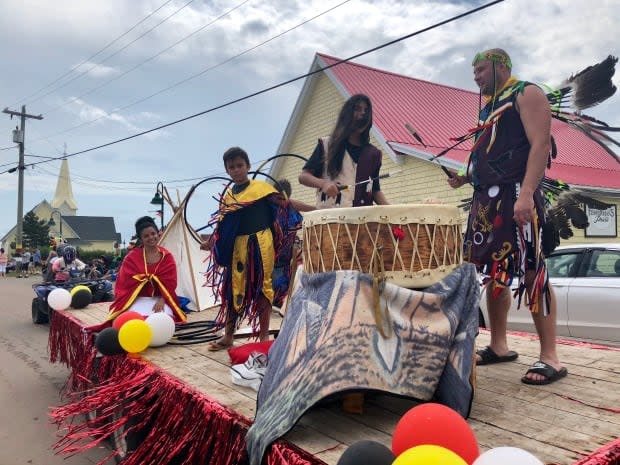Lennox Island celebrates St. Anne's Sunday while dealing with trauma of residential schools

WARNING: This story contains distressing details.
Lennox Island First Nation held its annual St. Anne's Sunday celebrations this past weekend.
Held on the last Sunday of July for hundreds of years, St. Anne's Sunday includes a lobster feast, parade and different community events.
"We felt like the community really needed to be cheered up right now," Chief Darlene Bernard said.
Every year, celebrations start with a mass at St. Anne's Church, which was built on Lennox Island in 1895. Bernard used this year's service to talk about the role of the Catholic Church in her community, especially following the recent discoveries of more than 1,000 unmarked graves at former residential schools across the country.
Many residential schools in Canada were operated by the Catholic Church. Bernard said some in her community, especially the younger members of Lennox Island First Nation, are angry at the church.
"They're just hearing these atrocities that are happening so automatically they just want revenge," said Bernard. "It's like, 'yes, burn the church, burn the church.' But I think that we need to help our young people to understand that the church that's sitting here in our community is the centre of our community."
In June, Charlottetown's Catholic diocese posted a public apology for the Catholic Church's role in the residential school system.
Catholicism and Indigenous spirituality coexisting
Bernard said this year's St. Anne's Sunday included a moment of silence for the children who were forced to attend residential schools.

Members of the Lennox Island First Nation gathered in their boats just before the fireworks and launched orange smoke in the air as a way to mark the tragedy.
According to Bernard, there are members of Lennox Island First Nation with strong Catholic faith, and others who follow Indigenous spirituality.
"What we've been doing, I think, over the last number of years is we've been blending the two. So we will have drumming in our church. You know, we do have our sacred ceremonies in the church now. So I think that all of that just speaks to the fact that they can coexist together as long as it's respectful of each side."
'Not a threat'
Bernard said the Catholic Church "is not a threat" anymore to Mi'kmaw language and culture, as it was decades ago.

"My grandmother brought me to church. My grandfather was a residential school survivor. They brought us to church. Kind of hard to get your head around that, I suppose, when you think about it, but that's what we were brought up in," she said.
Bernard said she has spoken to elders and survivors of residential schools who support St. Anne's Day celebrations and don't blame the Catholic Church for residential schools.
"What they're saying to me is they're saying that God didn't do this. The church itself, as the structure didn't do this. It was evil people who did it, and they're the ones who need to be held to task."
Support is available for anyone affected by their experience at residential schools, and those who are triggered by the latest reports.
A national Indian Residential School Crisis Line has been set up to provide support for residential school survivors and others affected. People can access emotional and crisis referral services by calling the 24-hour national crisis line: 1-866-925-4419.
More from CBC P.E.I.

